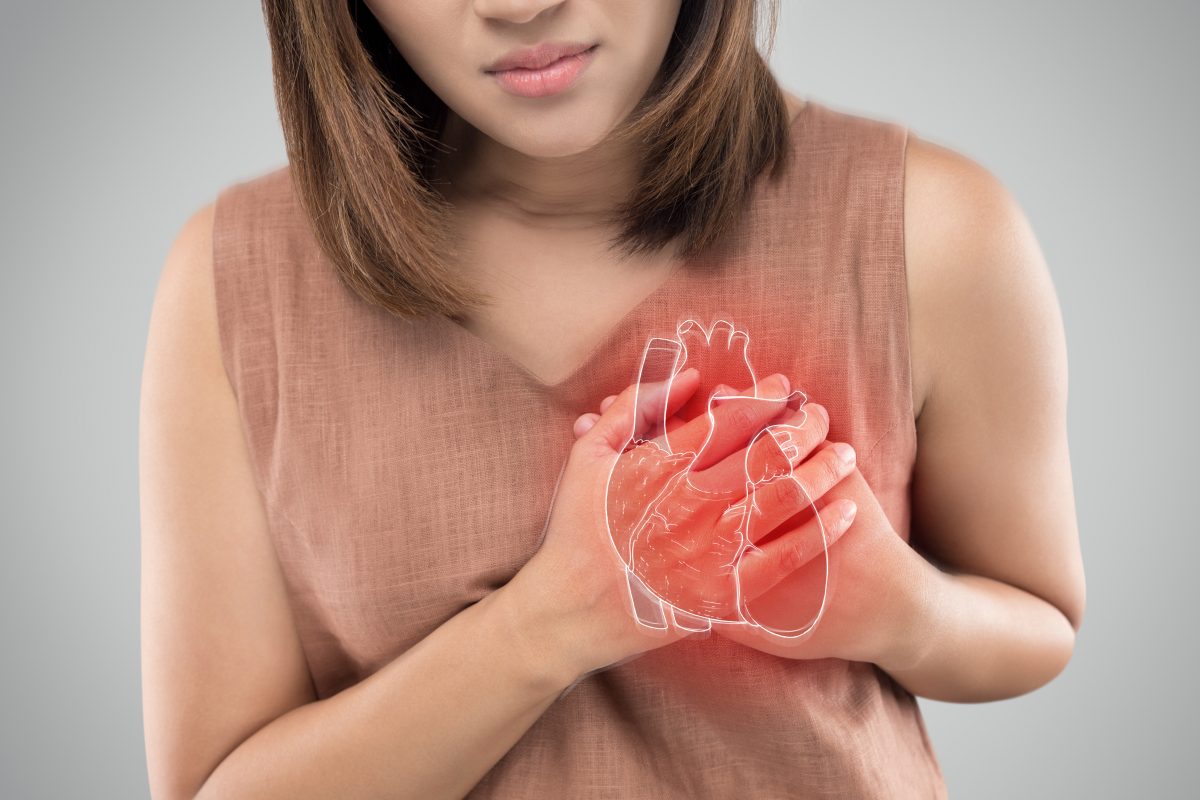When most people think of a heart attack, they picture a person trying to catch their breath, holding their arm or even slumping over. But in reality, women may experience symptoms that are easier to overlook.
“Cardiovascular disease is actually the most common cause of death for women in Tennessee,” says Dr. Ian Hamilton, medical director at BlueCross BlueShield of Tennessee. “We tend to hear more about men having heart attacks and more about women needing to get screened for breast cancer, for example. While we all need to take those preventive measures for our health, it’s important that we don’t forget that heart disease is one of our biggest challenges.”
What are the signs of heart attack?
Most of the signs of a heart attack are the same for women and men:
- Chest pain or discomfort, including feelings of:
- Crushing pressure
- Heaviness
- Squeezing
- Tightness
- Fullness
- Pain or discomfort which can radiate into the jaw, back, neck, or arm (right or left)
- Shortness of breath with or without chest pain or discomfort
- Fatigue
- Cold sweat
- Nausea or vomiting
- Feeling lightheaded
“Chest pain is one of the most common reasons people visit the emergency department — and it’s a good reason to visit,” says Dr. Hamilton. “Of course, it’s not always a heart attack. But it’s unreasonable to expect any person who’s not medically trained to be able to distinguish their chest pain from acid reflux or any other condition. What we look for is ‘atypical chest pain,’ which just means any discomfort in your chest that’s unusual for you. If you feel that — or even think you may be feeling that — it’s always safer to go.”
Up to 15% of women may not feel intense chest pain during a heart attack
What heart attack symptoms do women experience differently?
Women tend to have chest pain less frequently than men, and 10-15% of women may not have intense chest pain at all, even during cardiac arrest. Women are also more likely to attribute the symptoms of a heart attack to something less serious, such as the flu or stress, or to put off seeking help because they’re busy at work or at home. But noticing when something feels different could save your life.
“When the heart muscle isn’t getting adequate blood flow, you could feel anything from mild discomfort to intense pain, and you need to pay attention to all of those things,” says Dr. Hamilton. “The pain or discomfort could be strong, or you could just get the sense that something feels odd or off. If you get that feeling, get help.”
Another key difference for women is that their symptoms may come on while they are resting or sleeping, or as a response to mental stress instead of physical exertion.
Is there anything that makes women more likely to experience heart attack?
On average, women who have a heart attack tend to be about 10 years older than men. While that typically happens around age 65, women can suffer a heart attack at any age. Women who have diabetes are also at higher risk of heart failure due to heart attack than diabetic men.
“The science isn’t entirely clear on the relationship between heart attacks and an older age, but we think estrogen may provide women some protection in their pre-menopausal years,” says Dr. Hamilton. “When estrogen levels start to decrease, you may see more heart problems. Plus, since women tend to be older than men when a heart attack happens, they also have more risk factors to contend with, as we all do when we get older.”
Women may also be more susceptible to heart attack if they’ve experienced the following:
- Irregular heartbeat (Atrial Fibrillation or AFib)
- A previous heart attack
- Kidney failure or dysfunction
- High blood pressure (hypertension)
- Smoking
- Obesity
- Blocked arteries
Will a fitness tracker that monitors your heart rate help you spot a heart attack?
No. Currently no fitness tracker can identify a heart attack. While the newest version of the Apple Watch has the ability to help track Afib (an irregular heartbeat), it cannot diagnose a heart attack.
How quickly do you need to seek care for chest pain?
Immediately. Call 911 or go to the emergency room as soon as you notice a symptom.
“Heart attacks are very time-sensitive, and your recovery depends on how quickly you get to the ER and receive treatment,” says Dr. Hamilton. “Time is really critical, so if you think you’re having a heart attack, assume you’re right and go.”
Get more information about specific health terms, topics and conditions to better manage your health on bcbst.com. BlueCross BlueShield of Tennessee members can access wellness-related discounts on fitness products, gym memberships, healthy eating and more through Blue365®. BCBST members can also find tools and resources to help improve health and well-being by logging into BlueAccess and going to the Managing Your Health tab.



WellTuned provides inspiration and practical advice for healthy living.
WellTuned does not offer medical advice. Any personal health questions should be addressed to your doctor.